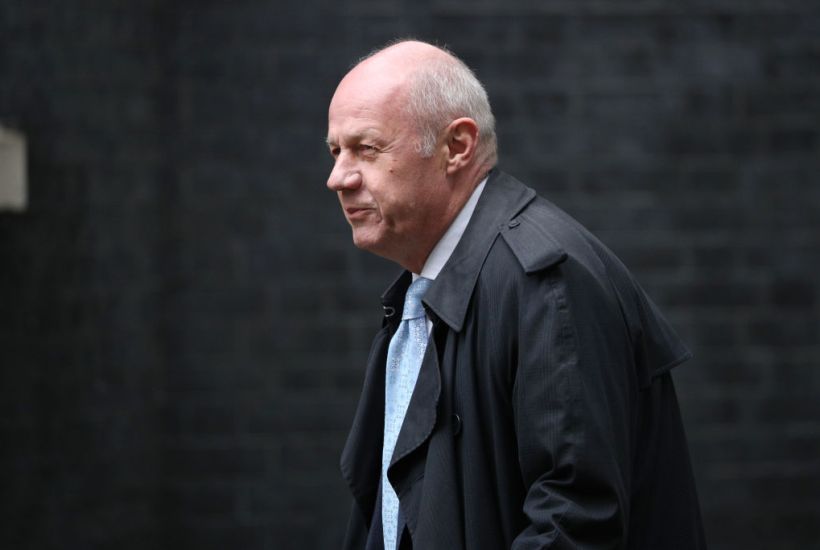Much has been written about Damian Green’s failure on Saturday to be selected for the new Weald of Kent seat. It was swiftly hailed as the ‘grassroots revenge’ of pro-Boris forces within the party. Theresa May’s onetime deputy was described as a ‘prominent anti-Boris activist’ responsible for forcing him ‘out of Downing Street’ last July.
The newly-formed Conservative Democratic Organisation (CDO) was quick to trumpet the result. Its chairman David Campbell-Bannerman said that ‘Those who turned on Boris Johnson are being punished – this deselection is hard evidence of this being real.’ Party chair Greg Hands tweeted his ‘full support’ of Green, declaring that ‘we stand behind our MPs.’ The result came a fortnight after Sally Ann-Hart failed to get reselected in Hastings.
The selection drama is a sign of things to come – though not for the reasons you might think. There is a clear attempt by some of Boris Johnson’s supporters to create a narrative of betrayal. Yet the ‘hard evidence’ that ‘those who turned on Boris Johnson are being punished’ currently relies on two MPs. If parts of the membership are turning on his assassins, then it’s by no means a uniform trend.
Simon Jupp, the MP for East Devon, called for Johnson to resign last July in a stinging open letter but that didn’t stop him from getting quietly selected on Saturday night for the new Honiton and Sidmouth seat. A similar wave of deselections was predicted by some after Margaret Thatcher’s downfall in 1990. Yet only Sir Anthony Meyer suffered this fate, following his unsuccessful leadership bid and an extra-marital affair.
The broader insinuation is that Sally Ann-Hart and Damian Green are both incorrigible wets, well to the left of the average member. Yet Hart rebelled on the Genocide Amendment and co-signed the Common Sense Group’s letter criticising the National Trust’s colonialism review back in 2020. And even Stephen Greenhalgh, the CDO’s vice-chairman tweeted that ‘Damian Green has been a force of good for decades’ and that his failure to be selected ‘had nothing to do with Boris Johnson.’
What then is going on? Perhaps the best answer is found in the CDO’s existence itself. The organisation was set up as a manifestation of grassroots anger at Johnson’s exit and to campaign for greater democracy to prevent a repeat of this in future. The mistake of some pundits is to conflate loyalty to Johnson with discontent at the party machine. Greenhalgh agrees, arguing that Green’s failure is less about Boris and ‘more to do with a system of selection/deselection that needs fundamental reform’.
The current point of contention is the boundary changes. This seems to have been an under-examined factor in Green’s unsuccessful selection effort. He sits for the neighbouring Ashford seat, with ConservativeHome suggesting that activists in the Weald of Kent seat wanted to pick a new candidate for the new constituency. They rejected the attempt on Saturday to have Green ‘re-adopted’ as the ‘incumbent’ MP for that reason.
It’s worth noting just how much extra work these reforms are creating for associations across the country, some of which are being effectively ‘ripped up’ by the changes. ‘The set timelines clashes with local elections which has made some feel CCHQ don’t value the locals’ says one Tory. ‘They’re all overworked and pissed off and one of the few things they have control over is selecting their general election candidate.’ There is also discontent over the recent membership fee hike, the high turnover in branch chairmen and the lack of any consultative ballot when Sunak succeeded Truss.
Tensions over boundary changes is going to be a recurring theme in the coming months. Hands’ response to Green’s failure to be selected is typical of the party’s approach to finding colleagues new seats. ‘No member left behind’ is the current mantra, with MPs keen to help fellow parliamentarians whose seats are about to be abolished find constituencies elsewhere across the country. Thus far twenty-one Tory MPs have publicly said they are quitting at the next election, with the party whips aware of more privately. But with Labour twenty-five points ahead in the polls, most of the 355 Conservative MPs look set to lose their seats – regardless of the boundary review.
As one minister points out, when the party is twenty points behind in the polls, members are much less likely to listen to CCHQ. In the current climate, it is not hard to see why activists in a plum seat would resent having a 50-something incumbent carpetbagger thrust upon them, rather than pick their own rising star. Complicating the lack of decent seats is a lack of time too. In CCHQ, Sunday July 23 is known as ‘vesting day’ when all the MPs who want to fight the next election will have had their fates settled, one way or the other. There are barely 20 weeks to go until that date, with the complicating factors of the Coronation and the local elections too.
One thing is for certain: expect plenty more stories about deselection dramas before then.
Got something to add? Join the discussion and comment below.
Get 10 issues for just $10
Subscribe to The Spectator Australia today for the next 10 magazine issues, plus full online access, for just $10.





















Comments
Don't miss out
Join the conversation with other Spectator Australia readers. Subscribe to leave a comment.
SUBSCRIBEAlready a subscriber? Log in